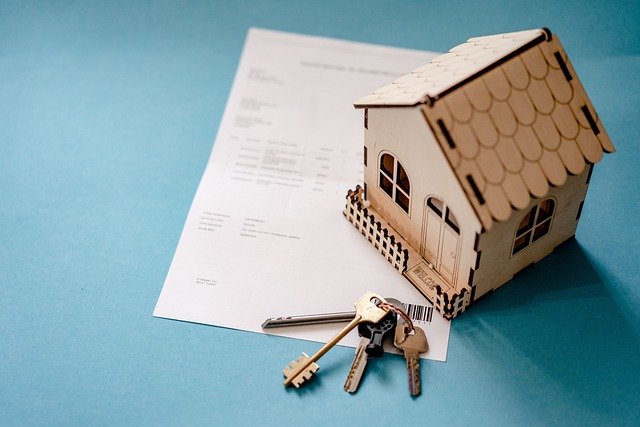5 Tricks for Fast, Natural Constipation Relief
Discover five simple and effective tricks to help relieve constipation quickly and naturally. Whether you face occasional discomfort or want to improve your digestive health, these evidence-based tips are easy to try at home and can make a real difference in your daily well-being.

Constipation affects millions of people and can significantly impact daily comfort and quality of life. While occasional constipation is common, finding safe and natural ways to encourage bowel movements can help you feel better without relying solely on over-the-counter medications. The strategies outlined here focus on lifestyle adjustments and gentle remedies that support your digestive system naturally.
This article is for informational purposes only and should not be considered medical advice. Please consult a qualified healthcare professional for personalized guidance and treatment.
How Can You Boost Your Fiber Intake Effectively?
Fiber plays a crucial role in digestive health by adding bulk to stool and helping it move through the intestines more efficiently. Most adults need between 25 and 35 grams of fiber daily, yet many fall short of this goal. Incorporating fiber-rich foods into your meals can make a noticeable difference in bowel regularity.
Focus on whole grains like oats, brown rice, and whole wheat bread. Fruits such as apples, pears, berries, and prunes are excellent choices, as are vegetables like broccoli, carrots, and leafy greens. Legumes, including beans, lentils, and chickpeas, provide substantial fiber content. When increasing fiber intake, do so gradually to allow your digestive system to adjust and prevent bloating or gas. Pairing increased fiber with adequate water intake ensures the fiber can do its job effectively.
Why Is Staying Hydrated So Important?
Water is essential for softening stool and facilitating its passage through the digestive tract. When your body is dehydrated, the colon absorbs more water from waste, resulting in harder, more difficult-to-pass stools. Adequate hydration supports all bodily functions, including digestion.
Aim for at least eight glasses of water daily, though individual needs vary based on activity level, climate, and overall health. Herbal teas and clear broths can also contribute to hydration. Warm liquids, particularly in the morning, may stimulate bowel movements. Limit beverages that can contribute to dehydration, such as caffeinated drinks and alcohol. Keeping a water bottle nearby throughout the day serves as a helpful reminder to drink regularly.
How Does Gentle Exercise Help with Constipation?
Physical activity stimulates intestinal contractions, which help move stool through the colon. Even light exercise can encourage bowel movements and reduce the time waste spends in your digestive system. You don’t need intense workouts to see benefits.
Walking for 20 to 30 minutes daily is one of the simplest and most effective ways to promote digestive health. Yoga poses that involve twisting or compressing the abdomen can be particularly helpful. Stretching, swimming, and cycling are also beneficial. Regular movement improves overall circulation and reduces stress, both of which contribute to better digestive function. If you’ve been sedentary, start slowly and gradually increase activity levels.
What Is the Benefit of Establishing a Daily Bathroom Routine?
Your digestive system responds well to consistency. Training your body to expect a bathroom visit at the same time each day can help regulate bowel movements. Many people find that mornings, particularly after breakfast, work best due to the natural gastrocolic reflex that stimulates the colon after eating.
Set aside time each day when you can relax without rushing. Avoid ignoring the urge to go, as delaying bowel movements can worsen constipation over time. Creating a calm environment in the bathroom, free from distractions, allows your body to focus on the task. Proper posture also matters; elevating your feet slightly with a footstool while sitting on the toilet can align your body in a way that makes elimination easier.
Which Safe Remedies and Supplements Should You Consider?
Several natural remedies and supplements can provide gentle relief from constipation. Prunes and prune juice contain sorbitol, a natural laxative that draws water into the intestines. Flaxseeds and chia seeds offer both fiber and omega-3 fatty acids. Psyllium husk is a popular fiber supplement that can be mixed into water or smoothies.
Probiotics support gut health by promoting beneficial bacteria that aid digestion. Magnesium supplements can also help by drawing water into the intestines, though dosage should be discussed with a healthcare provider. Herbal teas containing senna or ginger may offer short-term relief, but senna should not be used long-term without medical guidance. Always introduce new supplements gradually and monitor how your body responds.
Conclusion
Managing constipation naturally involves a combination of dietary improvements, proper hydration, regular physical activity, consistent bathroom habits, and thoughtful use of safe remedies. These strategies work together to support your digestive system and promote regular bowel movements. While occasional constipation is normal, persistent issues warrant professional evaluation to rule out underlying conditions. By making these adjustments part of your daily routine, you can often achieve relief without relying on medication and maintain better digestive health overall.




